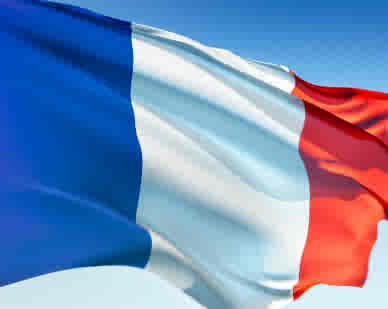US, EU still working sanctions plan for Iran for pursuing nuke enhancement
 Paris/Berlin, Oct. 1 : Plans are still being worked out by the United States and its European on how to punish Iran if nuclear program-related talks that begin on Thursday are not successful.
Paris/Berlin, Oct. 1 : Plans are still being worked out by the United States and its European on how to punish Iran if nuclear program-related talks that begin on Thursday are not successful.
The Washington Times quoted the White House and a French official, as saying on Wednesday that American and European strategies have largely converged on the need for expanding economic sanctions if Iran does not open its nuclear program to international inspection and abandon any ambitions to produce nuclear weapons.
Russia and China, however, are not so sure that this is the right way to proceed and could undercut whatever steps Washington and European capitals might take.
There is a general agreement on measures to further restrict Iran''s ability to trade with the outside world, said government officials and analysts in Europe and Washington, although the precise nature of new sanctions is still the subject of intense discussions.
While the French diplomat said that all were united on the perspective, the White House official called the final package "an ongoing project."
"We have done a tremendous amount of work and have done a lot of consultations around the world, with respect to the pressure track. We''re prepared on a range of areas," said the official, who spoke to reporters at the White House on the condition of anonymity.
Thursday''s talks in Geneva will be the first comprehensive, publicly acknowledged negotiations between Iran and the United States since the United States broke diplomatic relations with Iran in 1980 while it held U. S. diplomats hostage.
In an apparent effort to improve the atmosphere for the talks, Iran has allowed Swiss diplomats who represent U. S. interests in Iran to visit three American hikers detained by Iran near the Iraq border in late July. Iran also has released several political prisoners including a businessman, Bijan Khajepour, who has traveled frequently to the United States, said Karim Sadjadpour, an Iran specialist at the Carnegie Endowment for International Peace in Washington.
Meanwhile, the United States allowed Iranian Foreign Minister Manouchehr Mottaki to visit Washington on Wednesday for several hours, the first time in a decade that an Iranian official of that level has been permitted outside the New York area.
Assistant Secretary of State P. J. Crowley said the Iranians made the request "in the last day or two" and that Mottaki visited Iran''s interest section in Washington. Mr. Crowley called the visit "an interesting coincidence" but said, "I would not read a lot into this."
White House senior officials said Mottaki was "not seeing anybody from the administration."
Expectations going into the Geneva meeting are low. Thursday''s talks are expected to be tough.
Iranian officials have insisted that they were not obliged to disclose the new uranium facility until shortly before they were ready to begin processing uranium.
Ali Akbar Salehi, who heads the Atomic Energy Organization of Iran, said Tuesday that his country built the plant inside a mountain and next to a military base as insurance in case of foreign attack on a larger enrichment plant at Natanz.
France, Britain and Germany are now seen as favoring new or expanded sanctions on shipping insurance and export credits, they have little appetite for the idea gaining traction in Congress to block exports of refined petroleum products such as gasoline to Iran.
Iran imports 40 percent of its gasoline. Other analysts say the figure has dropped to 25 percent as Iran has constructed new refineries.
Some European countries have already sharply reduced their export credits to companies doing business with Iran. Germany last year approved $95 million in such export credits, less than one-tenth the amount it granted in 2006.
"We need to see practical, tangible steps to build confidence in Iranian intentions," including willingness to open Iran''s nuclear facilities to thorough international inspection," a senior U. S. official in Geneva said Wednesday.
He said a 2007 proposal for a so-called freeze-for-freeze - under which no new sanctions would be imposed and Iran would not expand its uranium enrichment program for six weeks - "remains the starting point for us for discussions." (ANI)